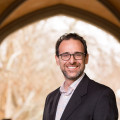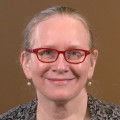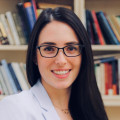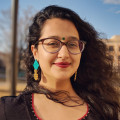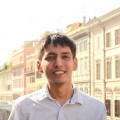Dr Kathryn Coleman, Senior Lecturer, Visual Arts and Design Education, Co-Director UNESCO Observatory of Arts Education, Melbourne Graduate School of Education
Professor Sophia Arkoudis, Professor of Higher Education, Associate Dean (Research), Melbourne CSHE, Melbourne Graduate School of Education
Dr Bella Blaher, Faculty Research Manager, Melbourne Graduate School of Education
Melina Mallos, PhD Candidate, Melbourne Graduate School of Education
Meredith Hinze, Manager, eLearning/eTeaching, eTeaching Unit, Academic Support Office, Faculty of Arts
Dr Charles Sevigny, Senior Lecturer, Director of Digital Learning, School of Biomedical Sciences, Academic Programs and Major Coordinator, Department of Physiology. Faculty of Medicine, Dentistry and Health Sciences
Dr Clare McNally, Lecturer, Oral Health, Melbourne Dental School, Faculty of Medicine, Dentistry and Health Sciences
Dr Karen J. Donald, Senior Lecturer, Doctor of Physiotherapy Course Coordinator, Physiotherapy, School of Health Sciences. Faculty of Medicine, Dentistry and Health Sciences.

